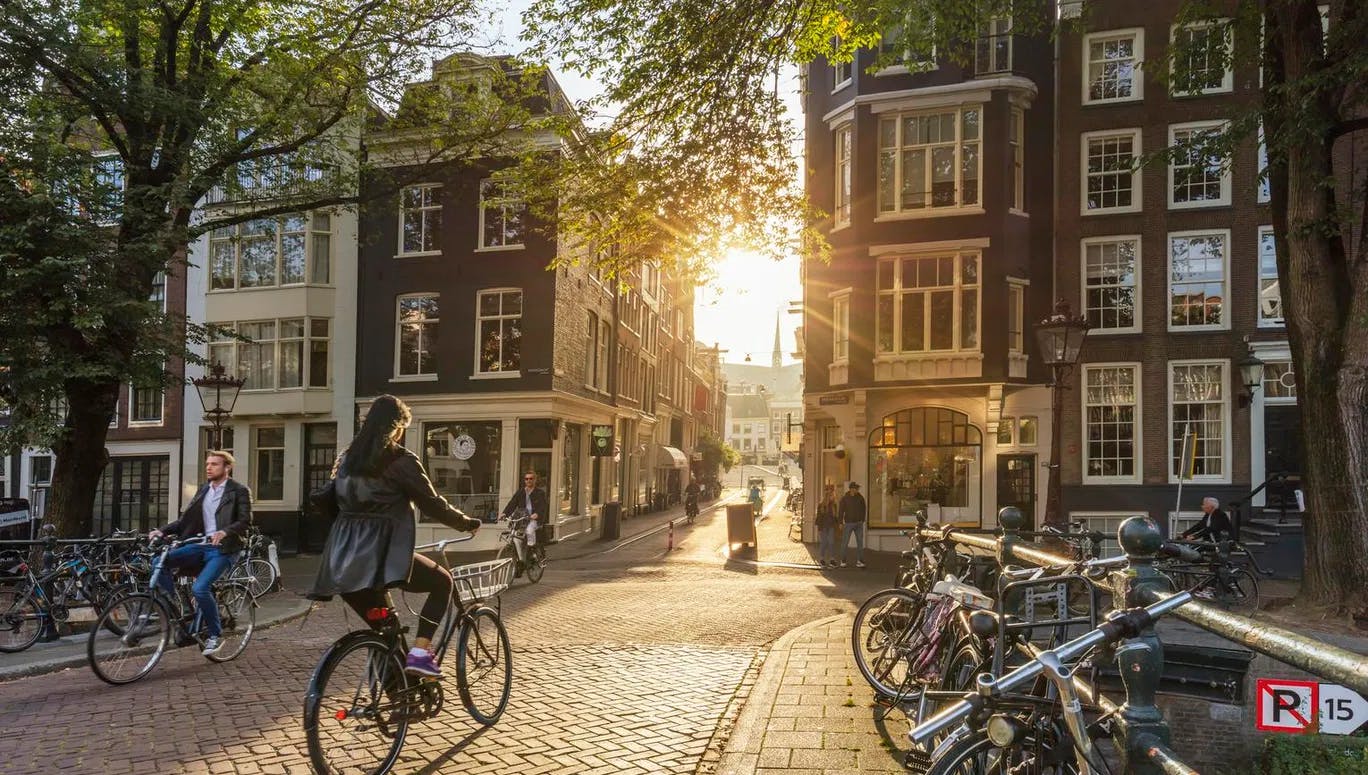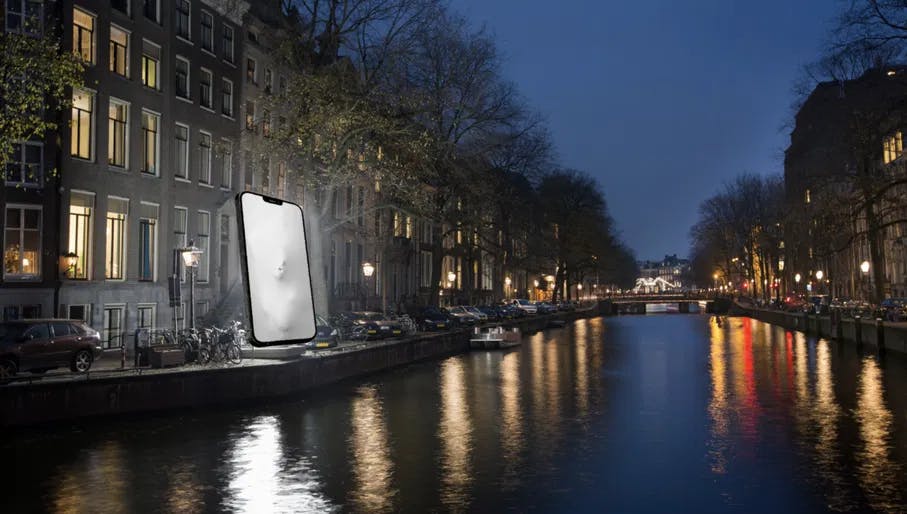
Driving in Amsterdam
14 August 2025


In life-threatening situations, call the emergency helpline by dialling 112. An ambulance, fire department or police will be dispatched to help you. This is a Europe-wide emergency helpline (equivalent to 911 in the United States or 999 in the United Kingdom). In addition to Dutch, operators speak English and can offer services in French or German. If you are deaf or hard of hearing, you can send an equivalent text to 0800 8112.
For emergency visits to your hotel room, telephone consultations and consultations on location, contact the hotel reception or call the tourist doctor at +31 (0)20 427 5011. Fees are determined by the National GP Association and are covered by most travel and medical insurance.
The accident and emergency (spoedeisende hulp or more commonly A&E) department of a hospital is meant for life-threatening situations requiring immediate specialist medical treatment. In all non-life-threatening situations, first, contact your GP. They will determine if you need treatment in A&E and inform you which hospital or location to visit.
For less serious issues – such as minor falls, forgotten medication or unexpected/recurring minor conditions – you can contact TouristDoc on +31 202 624 282. TouristDoc's medical professionals provide comprehensive in-room medical care for Amsterdam's visitors who want to bypass the inconvenience of hospital visits. For information on fees, visit the website.
Amsterdam's 24-hour dental clinic, Dental 365, treats patients experiencing chronic pain and other dental emergencies on a walk-in basis. The practice is open from 8:00 until 23:00, and a dentist is on call 24/7 for emergencies after these hours.

If you have been a victim of harassment, intimidation, violence, robbery, or any other type of crime during your visit to Amsterdam, it is really important to report this. Either report the crime online or in person at a police station in the city (by appointment). The Dutch police website offers a search tool for police station locations.
In emergency situations or to report a crime in progress, call 112. For non-emergency situations requiring police assistance or to make an appointment to report a crime in person, call 0900-8844 (if using a mobile phone with an international SIM card please dial +31 343 578 844).
Amsterdam is for everybody, regardless of race, religion, gender identification, political beliefs or sexual preference. Visitors and residents are free to be who they want to be, and have their views and choices respected. Hate crimes against members of any community or minority will never, ever be tolerated. If you’re a member of the LGBTQI+ community, read this guide to safety and resources in Amsterdam for more advice.
If your passport has been stolen, report this to the police. If you have lost your keys, wallet or other personal possessions, or you have found somebody else's lost belongings, the iLost website should be your first stop. Remember that it usually takes three business days for an object to be registered online.
If your bike, valuables, keys, or phone fall into the canal, don't fear! Mark the location and call Recovery Divers, who will come to the rescue (for a fee) with their scuba diving gear, metal detectors, and pinpointers to fish it out. Usually, they can help you the same day or the next day, depending on availability and what kind of item you lost. They dive in water such as ponds, canals, rivers, and lakes throughout the Netherlands.
Municipal enforcement officials (handhavers) are a familiar sight in Amsterdam, particularly in busy public spaces, train stations, and public transport. Representing the City of Amsterdam, they ensure safety and security on the streets. Easily recognisable in blue uniforms with "Handhaving" on the back and a reflective chequered strip on the chest, they are approachable and ready to assist locals and tourists with directions or municipal queries.
Their daily tasks include addressing car parking issues, illegal waste dumping, nuisance behaviour, and improper bike/scooter parking. They can request identification, issue fines or warnings for minor offences, and notify the police or other authorities in unsafe or illegal situations, allowing the police to focus on serious crimes.
As in all major cities, pickpockets can be active in crowded places like cafés, bars, restaurants, and major events in Amsterdam. Keep a close eye on your belongings, especially valuables like smartphones. If possible, store them in a hotel safe or station locker and carry minimal cash. Report any pickpocketing to the police. Be cautious of distractions, such as someone pushing, touching, or asking for directions. Pickpockets often work in teams, using signals to coordinate. If a stranger engages you, it could be a distraction for theft.
To prevent mobile phone theft, note your phone's IMEI number and report thefts immediately so the police can add it to a national stolen phone database. Install a 'find my phone' app to help trace its location.

Amsterdam's narrow streets and canals are not ideal for cars, especially in busy districts with many pedestrians and cyclists. Use parking garages or park-and-ride facilities outside the city centre, which have excellent public transport links. Read this guide to driving in Amsterdam.
Sleeping in vehicles is prohibited in Amsterdam for safety reasons, with fines of €140 for violations.
Amsterdam residents own about 850,000 bicycles and cycle two million kilometres daily. The city continues to improve bike paths and parking facilities to maintain its status as a bike-friendly city. Read our complete guide to safety and cycling in Amsterdam.
In Amsterdam’s city centre, narrow streets and pavements often tempt pedestrians onto public roads, cycle lanes and tramways, but this is dangerous. Stay on pavements, give space to wheelchair users, and check for bikes and traffic before crossing streets. Remember, traffic in the Netherlands drives on the right. Check out our video about walking in Amsterdam.
While picturesque, canals can be dangerous. Falling into the water is risky due to high walls and cold temperatures. Always stay aware of your surroundings near the water. Public urinals are available, as urinating in canals is illegal.


We want you to have a fantastic time at one of the major events our beautiful city hosts — but safety first. Know that the (mis)use of drugs is illegal, and there are real health risks involved. Stay hydrated, eat well, and avoid mixing substances. Through ADE's “Celebrate Safe” campaign, venues will have enhanced security, medical aid stations, and staff on hand to provide assistance. For your journey home (or between events), services like Diva Ride (female-driver option) are available to offer an inclusive ride. Take care of yourself and those around you. If anything feels wrong, physically or in your surroundings, don’t wait: get help immediately. Know your limits and respect those of others.